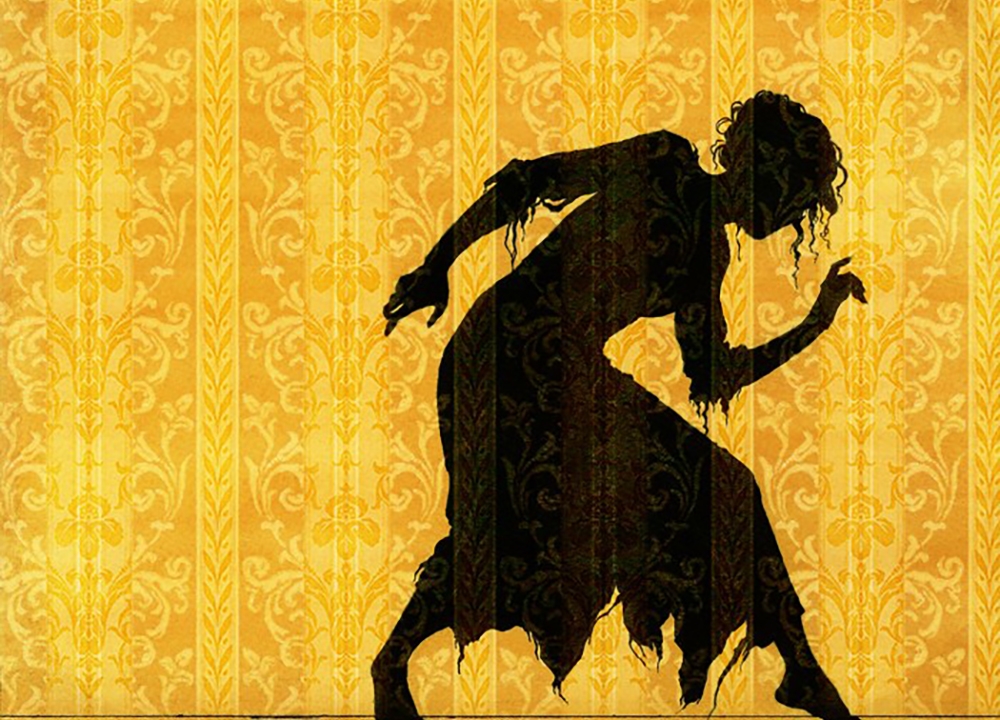Elite Hasson | Contributor
Featured image: World premiere of The Yellow Wallpaper addresses mental health and gender issues. | Courtesy of Goodreads
Imagining a world where mental illness or general disabilities are not yet widely known in conceptual terms feels remarkably foreign. In reality, a significant lack of awareness and sympathy regarding all disabilities existed for the overwhelming majority of the 20th century. Those who endured traumatic mental experiences such as hysteria in the 17th century were labeled as witches or demonically possessed and were burned at the stake.
From January 25 to 28, Theatre @ York debuted two performances, The Yellow Wallpaper and Three Sisters, paying tribute to these individuals and emphasizing the need for more open communication and accommodating environments for those who face challenges associated with mental illness and other disabilities.
“The Yellow Wallpaper,” an 1892 short story written by Charlotte Perkins Gilman, was adapted into a dynamic performance by MFA candidate and director Matthew Earnest, featuring York students both behind the scenes as well as graduate MFA and fourth-year conservatory actors on centre stage. The world premiere of this adaptation took place on January 25, after nearly half a year of development.
After being prescribed constant bed rest and isolation post-birth by her physician husband to “cure” her of overactive imagination and nervous tendencies, the protagonist’s lonesome and under-stimulated mind begins wandering to a murky, desolate place. In particular, her fascination with the patterns and colours of her bedroom’s yellow wallpaper becomes one of utter obsession, contempt and fear. This adaptation brilliantly captures the essence of the original story’s strong, imaginative protagonist, struggling to redeem her sanity and independence while showcasing a multitude of delightful, plot-enhancing twists.
Some of the more striking adaptational changes were completely out of Earnest’s control. He was asked to make a play for eight women, to which he responded by brilliantly adapting the work to include the voice of eight women as the singular protagonist. Earnest was originally drawn to the short story because of how it emphasized original thoughts, opinions and the pressures to conform to a group.
“I think she’s very worried and I liked the idea that she’s fighting so hard to maintain her sense of identity. I don’t think it matters what gender you are, what socio-economic status you’re in, what colour you are, I think it’s something we all go through and the story tells that thought very well,” says Earnest.
Speaking in eerie synchronization followed by banter between each other, judging each other, being playful together and supporting each other; these women were the voices of reason, fury, fear and frustration that all exist within us, all physically communicating with each other. Earnest deserves recognition for not only adapting a story into a play but adapting his actors into characters.
“I made the adaptation myself, crafted it and tailored it very specifically for those people who I had been working with quite a bit for a year and a half. I knew all of them quite well and I let that inform the adaptation,” says Earnest. The attitude of a director who tailors a work to enhance the experience and accentuate the strengths of the actors, not only to advance their own interests in a production, is one whose heart, not only vision, is truly emerged in the arts.
Even without a trace of the vivid yellow wallpaper that is mentioned frequently in the short story, the adaptation was remarkably colourful. “It’s not some kind of aesthetic or design event, it’s really about the women telling the story that they see,” notes Earnest on the lack of yellow wallpaper in the production.
The evoking soundscapes, obvious friendship of the eight actors, addition of thought-provoking monologues and exceptional use of space and rhythmic movement created an experience that left the audience in a vulnerable place during and after the performance.
“Dare to make it about you, to reveal your rage and your joy,” adds Earnest.


